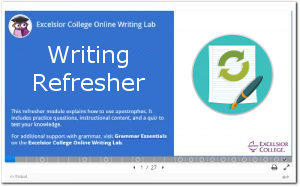 You want to be sure that you are always consistent with your verb tense. When you shift verb tenses for no reason, and this is an easy mistake to make, you can really confuse your readers.
You want to be sure that you are always consistent with your verb tense. When you shift verb tenses for no reason, and this is an easy mistake to make, you can really confuse your readers.
If you’re writing in the present tense, be sure you stay in the present tense. If you’re writing in the past tense, be sure you stay in the past tense. The exception would be if you need to shift tenses to tell a story, but that would be purposeful shifting. It’s the random, accidental shifting that causes the problems, as illustrated in this example:
These sentences begin in the past tense, then switch to the present tense. Here is what a corrected version of the sentence looks like:
You should also be aware that certain types of writing require either past or present tense—or both. For example, research in APA format often needs to be presented in the past tense, but a literary analysis written in MLA format needs to be presented using present tense verbs. It’s called the literary present tense. Generally speaking, no matter what style guide you are following, you want to write about authors, poets, and playwrights in the present tense. For example:
Because literature is seen as a living art form, we use the present tense to describe what writers do.
Below is a table of APA 7th edition verb tense recommendations for literature reviews and research papers.
If you’re ever unsure about tense requirements, be sure to ask your professor.
| Paper Section | Recommended tense | Example |
| Literature review (or whenever discussing other researchers’ work) | Past | Quinn (2020) presented |
| Present Perfect | Since then, many investigators have used | |
| Method or description of procedure | Past | Participants completed a survey |
| Present Perfect | Others have used similar approaches | |
| Reporting of results | Past | Results were nonsignificant Scores increased Hypotheses were supported |
| Discussion of implications of results | Present | The results indicate |
| Presentation of conclusions, limitations, future directions, and so forth | Present | We conclude Limitations of the study are |

